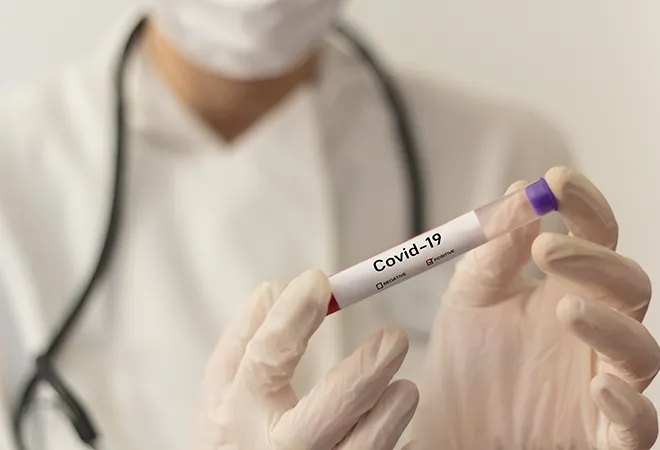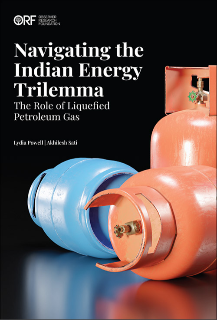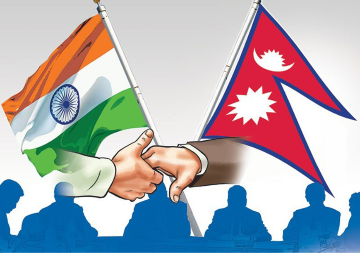
With the much-dreaded COVID-19 form of coronavirus making international headlines, authorities in at least two of the South Asian nations that are facing country-wide elections next month, may be apprehensive of the threat and spread of epidemic nearer to home than elsewhere. While Maldives is scheduled to have local council elections on 4 April, Sri Lanka is scheduled to have the critically-important parliamentary polls on 25 April.
Both nations have a history of high voter-turnout at every election for long, however rumours, speculation or spread of the disease in any part of the country in the days immediately preceding the respective polling dates could impact on the final results. How the ground situation pans out on the election front may be too early to speculate, but at least in Maldives, the political Opposition has suspended its campaign, after early cases of the virus-outbreak.
Between the two and even otherwise, Maldives has since declared the nation’s first-ever ‘public health emergency’, for a period of 30 days. Incidentally, the polling day falls within the 30-day period. However, the Election Commission has not indicated any change in the poll schedule as of now. Maldives was also possibly the first country in South Asia to realise and acknowledge the possible magnitude and gravity of the situation. With international tourism being the mainstay of the nation’s economy and job-market, the Government went all out to prepare for tackling the situation. President Ibrahim Solih chaired a series of official meetings in capital Male, after cutting short his campaign for his ruling MDP-led alliance in the LC polls.
According to official reports, UN affiliate WHO has also commended on the initiatives taken by the Maldivian government. Speaker of the parliament Mohammed Nasheed, has however stated that ‘restricting entry is not a feasible solution’ to check COVID-19 outbreak in the archipelago-nation. None of this observation is without a reason. Maldives gets a high tourist-turnout from across the world during this peak-season (November-April). This time, also, a high number of tourist arrivals were reported from early coronavirus-affected nations like China, South Korea, Japan and Italy. Thus, the Maldivian concerns are not without justification. With a population of around 400,000 spread across 1200 islands in the archipelago, Maldives also has one of the best primary care facilities in the region. However, speciality medical care in the country still needs to reach the levels available in neighbouring India and Sri Lanka.
Heart patients from Maldives often travel overseas, at times to countries like Australia and Singapore in the distant neighbourhood, for speciality medical care. The Government also has funding programmes for the poor. The level of health-awareness is relatively higher in the country than possibly elsewhere in the region – and at times overseas.
Maldives has since reported at least eight cases of coronavirus. Authorities have also quarantined some foreigners and those who’ve come in contact with them, for observations and medical tests, where required. The first case was that of a foreign employee in a resort-island, who had caught the virus from an Italian tourist. The authorities have also identified about 175 persons who came in touch with the tourist, both in the resort and during his stay in the capital Male for two days.
Opposition calls off campaign
The Opposition PPM-PNC combine of jailed former President Abdulla Yameen has since halted the campaign for the local council polls, citing virus fears as the reason. Some in the ruling MDP has attributed the rival’s decision to the ‘real possibility’ of an electoral rout – the third in as many years – after those to the presidency (2018) and Parliament (2019).
When Maldives opened up for international tourism in the late seventies, new laws barred tourist resorts on ‘inhabited islands’. Capital Male houses nearly a third of the nation’s population, with many residents coming from faraway islands, returning home for weekends. The resorts here normally employ residents from inhabited islands, who too travel to their native islands and capital Male, either on work or for ‘weekend-breaks’.
Protest in Sri Lanka
In neighbouring Sri Lanka, ‘The Island’, quoting Election Commission sources, said, it was ‘premature’ to consider postponement of elections. Here again, as is the wont with the two small island nations, the armed forces have been pressed into service to face of the ‘virus emergency’, if it could be called so. They began by housing travellers from early detection countries like South Korea, Italy and Iran to an isolation camp in a de-licensed private medical university in eastern Batticaloa town, identified with controversial Muslim politician M. L. A. M. Hizbullah.
The then Governor of Eastern Province, Hizbullah was in news after last year’s ‘Easter Sunday blasts’ in the country, on allegations of shady deals, including facilitating licence for the university. According to Tamil media reports, the local population planned to protest the choice of their town for setting up the isolation campus for possible COVID-19 patients.
Questions related to Ethnicity are being asked as to why travellers landing near capital Colombo on the western coast should be driven 220 km across the country, to Batticaloa on the Eastern coast, with its Tamil and Muslim population centres — and by road. Doubts also exists about isolation centres for the ‘corona-suspects’ who may need to answer calls of nature en route.
Chinese conundrum
Sri Lanka too receives a lot for foreign tourists, from all economic slabs, and from as many nations as neighbouring Maldives. A substantial number of Sri Lankan population of every ethnicity work overseas – men mostly in the Gulf-Arab region, and a large number of Sinhala-Buddhist women as ‘house-maids’, in the Gulf, Europe and elsewhere. Diaspora Tamils form a class of their own. All sections keep travelling home almost round the year, and could well be carriers of this dreadful disease. The Government has since halted the departure of job-seekers and job-returnees from undertaking foreign travels just now.
The first Sri Lankan to be detected for COVID-19 was travelling from Italy. Government doctors in capital Colombo have since announced the detection of a Sri Lankan similarly afflicted with the deadly disease. However, the first to be detected on Sri Lankan soil with corona virus was a Chinese traveller.
Official reports say there are 4,000 Chinese on Sri Lankan soil at present and the authorities have said that their movements were being watched. However, not everyone is satisfied with the ‘freedom of movement’ given only to Chinese while even locals were being quarantined. Left-leaning JVP Opposition has questioned the Government’s failure to quarantine the Chinese. Eyebrows have also been caused to be raised about main Opposition UNP’s stoic silence in the matter.
Unlike in Maldives, full-swing poll campaign is yet to commence in Sri Lanka. Hence, neither the authorities, nor the political parties or the common man has seen (through) the ‘coronavirus angle’ to the election process. The Election Commission is preparing for the polls on a war-footing scale and no poll official has made any public reference, at least, on the virus-impact, if any, closer to the election date.
It is a critical election for the ruling Rajapaksas, who need to obtain a majority in 225-memberr House, after having lived down with a ‘minority government’ since the presidential poll victory of November last. The Rajapaksas, President Gotabhaya, and Prime Minister Mahinda Rajapaksa have publicly declared their intention to obtain a two-thirds majority in the upcoming elections, to facilitate constitutional amendments. The situation is thus fraught with electoral possibilities of every kind and in every direction.
The magnanimity of the impact if any, will be known only when the poll nomination process closes and election campaign starts in full earnest.
In both Maldives and Sri Lanka, poll-campaign will involve VVIP movement across the country. It will also have to provide information of the campaign tours of all important political party leaders, their candidates and cadres. More importantly, a stray rumour during poll, could upset the whole turnout, not only of voters but also polling agents of the political parties and its candidates. This is an eventuality that the poll laws in the two countries may not have provided for, but ground realities might dictate, if it comes to the fore.
The views expressed above belong to the author(s). ORF research and analyses now available on Telegram! Click here to access our curated content — blogs, longforms and interviews.




 PREV
PREV


